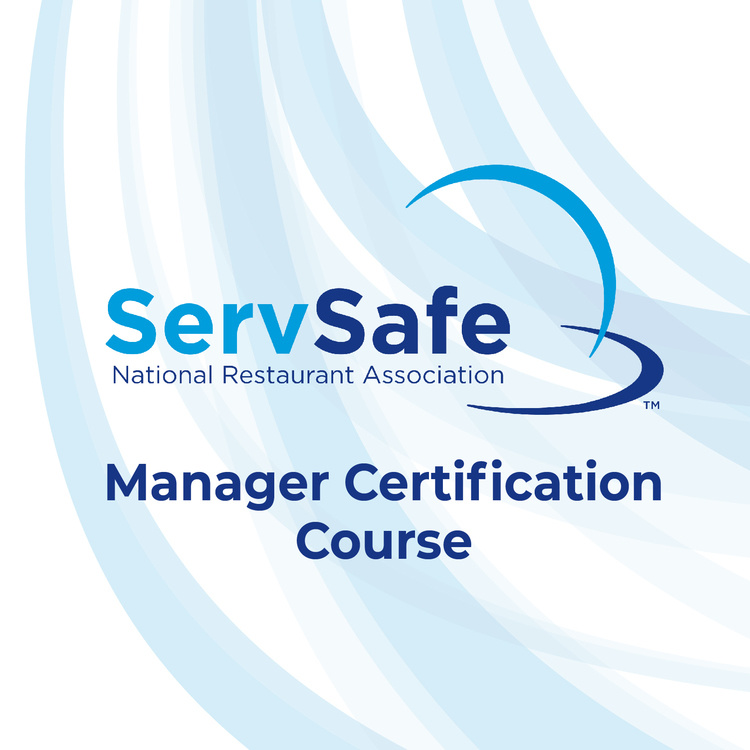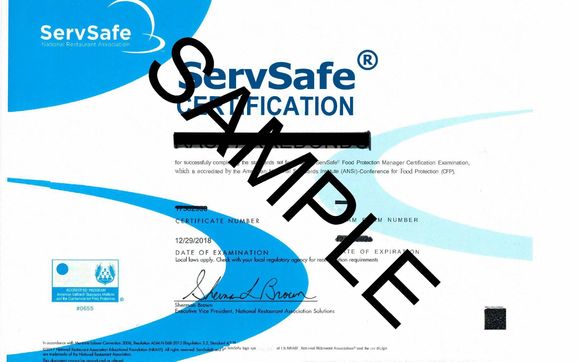Getting ready for the ServSafe Manager Certification Test: A Comprehensive Guide
Getting ready for the ServSafe Manager Certification Test: A Comprehensive Guide
Blog Article
Food Supervisor Qualification: Your Path to Management in Food Safety And Security
In the cooking industry, the value of food safety and security can not be overstated, and achieving Food Supervisor Accreditation is a crucial step for those aspiring to lead in this domain name. As we explore the complex benefits and duties linked with this certification, it becomes clear that the journey extends much past individual achievement, influencing the entire functional landscape of food service.
Importance of Food Security
Food safety is vital in the culinary industry, with numerous research studies demonstrating its vital duty in stopping foodborne health problems. The effects of compromised food safety extend past private wellness risks to encompass wider public wellness worries, financial effects, and damage to a service's track record. Ensuring the safety of foodstuff is crucial for keeping and safeguarding consumers trust in the food supply chain.
A comprehensive understanding of food safety techniques is vital for culinary specialists. This consists of knowledge of appropriate food handling, preparation, and storage space techniques, as well as the significance of preserving sanitary conditions in food establishments. Failure to stick to these requirements can cause contamination, resulting in break outs of foodborne conditions that present severe health and wellness threats.
Furthermore, regulatory conformity is an important facet of food safety, as government companies enforce rigorous standards to safeguard public health. Non-compliance can lead to substantial fines, consisting of fines and closure of facilities. For that reason, fostering a society of food safety and security within an organization is not only a lawful commitment however also a moral important. Inevitably, prioritizing food safety and security safeguards customers and enhances the general top quality and stability of the cooking experience.
Advantages of Food Supervisor Certification
Accomplishing Food Supervisor Qualification offers various benefits for cooking specialists and facilities alike (ServSafe Manager Certification). It enhances food safety and security expertise, outfitting supervisors with the abilities essential to protect against foodborne ailments and make certain compliance with health and wellness policies. This knowledge not only protects consumers yet likewise safeguards the establishment's credibility, fostering trust and commitment
Moreover, licensed managers are often viewed as leaders within their organizations, contributing to a society of security and accountability. This management function can result in improved staff member morale and retention, as staff participants feel more positive working under educated supervision. Additionally, several regional health divisions and regulative companies prefer or mandate certified managers in food solution operations, which can simplify the licensing process and reduce penalties connected to wellness code infractions.
On a business degree, Food Supervisor Certification can supply an affordable advantage. Establishments that focus on food safety may draw in even more customers, as consumers progressively look for dining options that demonstrate a dedication to wellness and hygiene. In general, acquiring this qualification is not just a personal accomplishment; it is a financial investment in the safety and security and success of the whole food service operation.
Accreditation Process Introduction
Browsing the qualification procedure for Food Manager Certification involves a number of crucial actions created to make certain prospects are well-prepared to copyright food safety standards. ServSafe Manager. Possible prospects should satisfy eligibility requirements, which typically include a minimal age and pertinent job experience in the food service industry.
Once qualification is verified, candidates ought to choose a trusted certification program that aligns with their demands and follow regional policies. Numerous companies see this page use online or in-person training courses that cover important subjects such as foodborne ailments, cleanliness practices, and secure food managing methods.
After finishing the training, prospects should pass a certification examination. This evaluation often consists of multiple-choice questions and practical situations that check understanding and application of food safety concepts.
Upon efficiently passing the examination, prospects get their certification, which is commonly valid for a collection period, often varying from three to 5 years. To maintain their accreditation, managers need to complete continuing education and learning or recertification programs within the marked timeframe. This organized process makes sure that certified food managers continue to be updated on finest practices in food security, inevitably protecting public wellness.
Key Obligations of Qualified Managers
Licensed food supervisors hold a crucial duty in ensuring the security and top quality of food in various establishments. Their main duty is to apply and develop food security procedures that abide with local, state, and federal policies. This entails performing regular evaluations of food storage, prep work locations, and tools to stop contamination and guarantee hygiene requirements are fulfilled.
In addition, certified managers are tasked with training staff on proper food dealing with methods, highlighting the value of personal hygiene and cross-contamination prevention. They should likewise guarantee that workers comprehend the importance of temperature control and safe food storage practices.
When required,Another secret obligation is to keep track of food safety practices and take rehabilitative activities. This includes examining any cases of foodborne ailment and recording findings to improve future techniques. Moreover, certified food supervisors are accountable for preserving exact records related to food safety, consisting of supply checks and wellness inspection results.
Progressing Your Profession in Food Safety And Security
Advancing your job in food security requires a calculated approach that stresses continuous understanding and professional growth. As the food industry progresses, staying abreast of the current regulations, modern technologies, and best methods is essential. Going after advanced accreditations, such as the Qualified Food Safety Manager (CFSM) program, not just enhances your understanding yet also indicates to companies your commitment to excellence in food security.
Connecting with industry experts can give valuable insights and chances for job development. Joining companies like the International Organization for Food Protection (IAFP) or the Food Safety and Assessment Solution (FSIS) can increase your professional circle and keep you informed about emerging patterns and obstacles in the area.

Eventually, a proactive strategy to expert development, paired with a commitment to food visit site safety, will certainly position you as a leader in the area, opening doors to brand-new opportunities and boosting your profession trajectory.
Conclusion
In verdict, obtaining Food Manager Accreditation stands for a substantial development in promoting food security within the cooking sector. Ultimately, the dedication to food safety and security through certification serves as a driver for expert development and the facility of high criteria within the sector.


Going after innovative accreditations, such as the Qualified Food Safety Supervisor (CFSM) program, not only improves your expertise more info here but likewise signals to employers your dedication to quality in food security.
In verdict, obtaining Food Manager Qualification represents a considerable innovation in promoting food security within the cooking sector.
Report this page